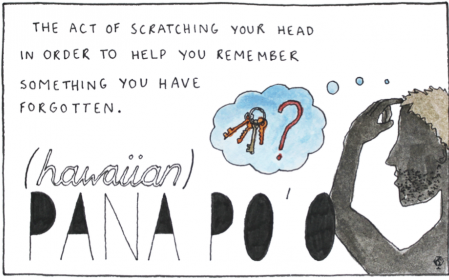Adopt a Word! Foreign Words With No English Equivalent
As a New Zealander, there are many words in the Maori language, like Mana and Tapu, that don’t translate into English as they reflect concepts that aren’t apparent in a Western society – but Maori isn’t the only tongue that does not always compute!
There are thousands of words and phrases from around the world that don’t have a translatable example in English, and vice versa, but here are a few we think we should adopt to make the world a better place.
Sobremesa: We all know and love Spain, partly for its rich culture, history, and architecture, but its food, wine, and mañana lifestyle also appeals, and of course they have a word that perfectly describes the conversation that follows a shared meal – I will be adding the word sobremesa to my vocabulary in future!
Komorebi: This Japanese word poetically describes the lovely effect of sunlight filtering through the trees. Wish I’d known this word during autumn – not much use for it now with the bare trees of winter abound.
Age-otori: Another great Japanese word to use as often as possible, it basically translates as ‘to look worse after a haircut’.
Arigata-meiwaku: And here’s a Japanese phrase that’s further inspiring me to learn the language. In a nutshell, ‘it’s when someone does something for you that you didn’t ask or want them to do, but they did it because they wanted to do you a favour, but then it all went horribly wrong, and you had to clean up the mess, but had to show gratitude because it’s the right thing to do’!
Mangata: The Swedish are poetic too when it comes to shimmery/glimmering light, with this word perfectly capturing the vision of moonlight reflecting on the water.
Backpfeifengesicht: Not one you’ll need often, one hopes, but this German word simply translates as ‘a face badly in need of a fist’.
Waldeinsamkeit: By contrast, this German word is much gentler, meaning a sense of solitude, and being at one with nature.
Poronkusema: Not one we’ve much use for in Britain, unfortunately – simply put, it’s Finnish for the distance a reindeer can go before needing to take a break.
Jayus: This Indonesian word for someone who is so bad at telling jokes, and is so unfunny that you can’t help but laugh, could come in handy sometimes – as long as I’m not on the receiving end!
Tingo: This word from the Pascuense language of Easter Island is my all-time favourite, but not one I’ll likely get the opportunity to use often – it’s the act of borrowing things from a neighbour’s house, one by one until there is nothing left!
With an estimated ¾ million words in the English language, what’s a few more?!
Do you know of any words or phrases that get lost in translation? Are there any others we should adopt as our own?



